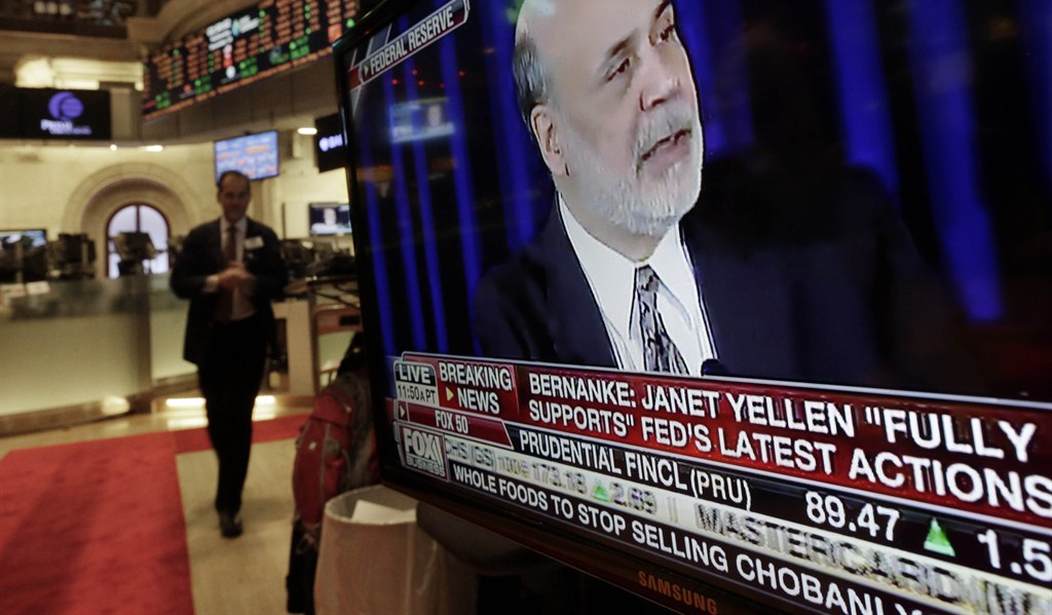"Simplify, simplify, simplify!"
--Henry David Thoreau, "Walden"
If there were a single guide to all the policies foreign and domestic of our present administration, it would be: "Complicate, complicate, complicate!"
That goes for everything from how best to appease Iran's mullahs to Obamacare. If there's a way to complicate a policy, our president is sure to find it. If he ever does say anything simple -- for example, "If you like your health-care plan, you can keep your health-care plan" -- it doesn't take him long before he'll find a way to deny, obfuscate, retract and/or generally muddle it. Preferably with the help of a whole new army of lawyers, regulators, bureaucrats, party hacks, PR types and "navigators" to make matters even more complex.
Here's the latest example. It's called the Volcker Rule, named after the long-time public servant who set out to restore the old wall between commercial and investment banking, that is, between the kind of bank that'll lend you money to buy a house or car of start a business, and the kind of bank that may engage in large-scale speculation. And not just with the bank's own federally insured money, but its depositors.'
There was a time, a long time, when that kind of thing was simply against the law -- a law passed in the early days of the New Deal, when the country was in the depths of the Great Depression and well aware of what that kind of "banking" had led to.
The New Deal was overflowing with ideas in its First Hundred Days -- both good and bad, sensible and awful. Its history is a whole Alexandrian library of what works and what doesn't in an economy fighting to recover. From federal deposit insurance, which still works well if it isn't abused, to the Resettlement Administration, which never did. (Any collectivist dream for American agriculture is doomed from conception, American farmers being American farmers.) The New Deal inaugurated both Social Security, which still works smoothly with only a course correction from time to time, and the National Recovery Administration, a voluminous wage-and-price-fixing scheme that only made a terrible economy worse.
Recommended
But all these volumes of experience on history's shelves grew dusty over time -- as unconsulted and unemployed as so many Americans were during the late and still lingering Great Recession. One of the New Deal's better and clearer reforms was a now antique piece of legislation called the Glass-Steagall Act. It stood for more than six decades against the kind of slicksters who are always thinking up new ways to gamble with other people's money.
Glass-Steagall erected a solid wall between old-fashioned conservative banking and the speculative kind that puts depositors' funds at risk. It was one of the New Deal's first shining contributions to fiscal sanity, and a fitting rebuke to the high-rollers who brought in the Crash of '29.
But as the 20th century ran out, and Americans' memory of history with it, Glass-Steagall was repealed by the Clinton administration and an equally thoughtless Congress. Both acted as if they'd discovered the secret of perpetual prosperity when they were just riding the crest of the dot-com boom before it fizzled.
The New Paradigm, it was called in the booming 1990s. It was that decade's equivalent of the New Era proclaimed in the Roaring Twenties. Neither era lasted very long. Any more than their lessons did. One man who does remember his American history is Paul Volcker, perhaps because he's been part of so much of it, serving ably as chairman of the Federal Reserve under two strikingly different presidents in succession -- Jimmy Carter and Ronald Reagan.
Now an economic adviser to this administration, which tends to swallow up even the best of men, Paul Volcker suggested a way to restrain the kind of speculation by banks-cum-investment houses that led to the financial panic the country has just sweated through. His inspired idea: Resurrect the spirit of the old Glass-Steagall Act, which insured banks but only if they remained banks -- rather than became investment houses, hedge funds, credit-default swappers or casinos by some other name. That old idea now had a new name: the Volcker Rule.
But by the time Paul Volcker's simple rule had become law, it had become an immense regulatory maze, hopelessly muddled by one federal agency after another as they took turns adding to it. Until the new Volcker Rule became as indecipherable as any other "reform" this administration has complicated beyond recognition.
It took the combined efforts of five federal bureaucracies to produce this 900-page puzzle. (The original Glass-Steagall Act ran a full 37 pages.) Those bureaucracies now have begun maneuvering to determine which one will have the final say when it comes to interpreting this new arcane mystery. And the final shape of this maze is still in flux, adding to the uncertainty that still stalks the American economy.
This much is clear: The biggest of the country's big banks will still be allowed to indulge in speculative schemes -- now called financial derivatives -- while a generation of honest bankers and bank examiners will be perplexed by these ever rewritten and always rewritable rules, regulations and riddles.
The moral of this story: There is nothing this administration touches that remains simple. Henry David Thoreau would understand the problem.

























Join the conversation as a VIP Member